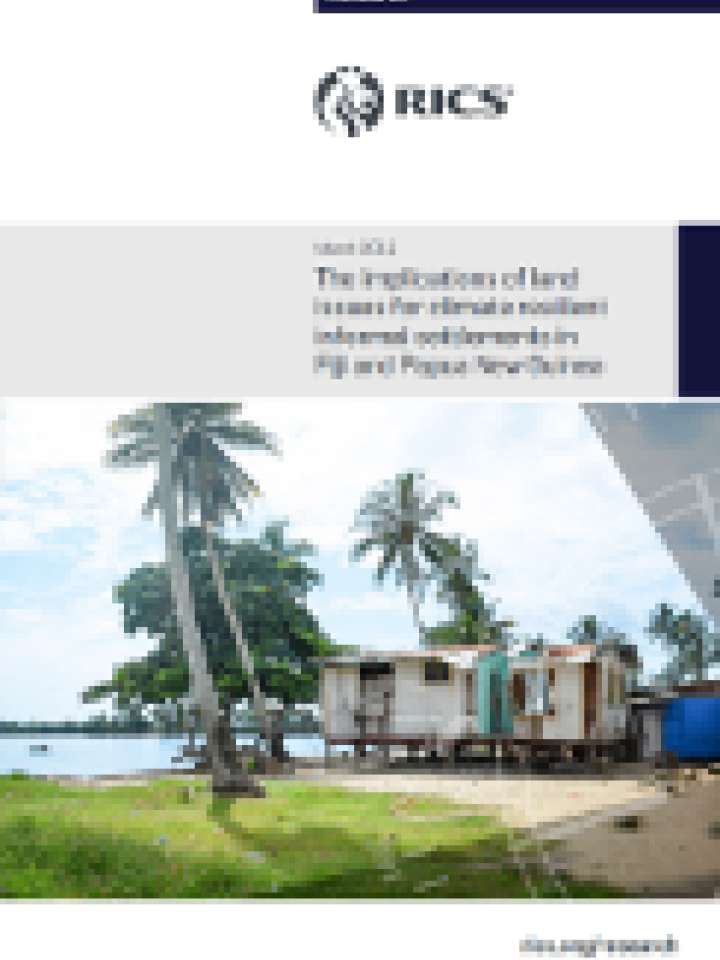The implications of land issues for climate resilient informal settlements in Fiji and Papua New Guinea
This research aims to understand the implications of land issues for the climate resilience of informal settlements in Fiji and Papua New Guinea, both of which have more than 80% customary tenure. Findings from the research are intended to inform people in the land and property sector about existing land issues and the complexity of resettlement in the context of land tenure arrangements, and the issues that need to be addressed in the process of resettlement in order to protect the rights of people in informal settlements, and improve their abilities to adapt to current climate variability and future climate change.
One in four Pacific Islanders is now an ‘urban’ resident with many of the new rural migrants locating in informal settlements in peri-urban environments. These settlements tend to develop on the least desired land such as hazard-prone areas, mud flats or poor quality land subject to drought. They often have limited infrastructure and access to services, limited security of tenure, low levels of adaptive capacity, and are vulnerable to being evicted from their dwelling or losing their access to land and livelihoods after a disaster. This combination of factors makes informal settlers particularly vulnerable to shocks and stresses.
Key conclusions of the research include:
- There are correlations at whole settlement level between tenure security, perception of vulnerability, and people’s ability to adapt.
- Long-term sustainability of resettlement decisions in Fiji or PNG will require effective coordination between the government agencies and the customary groups, and also look to reduce hazard risk and protect livelihoods.
- Two critical factors in any decision to resettlement people are (i) providing tenure security for all people affected, and (ii) providing people who are to be resettled with confidence that they will be accepted into the community.
- The protection of tenure security requires that the government records, recognises and respects the tenure rights of all people affected – at both the resettlement site and the new sites.
Explore further
